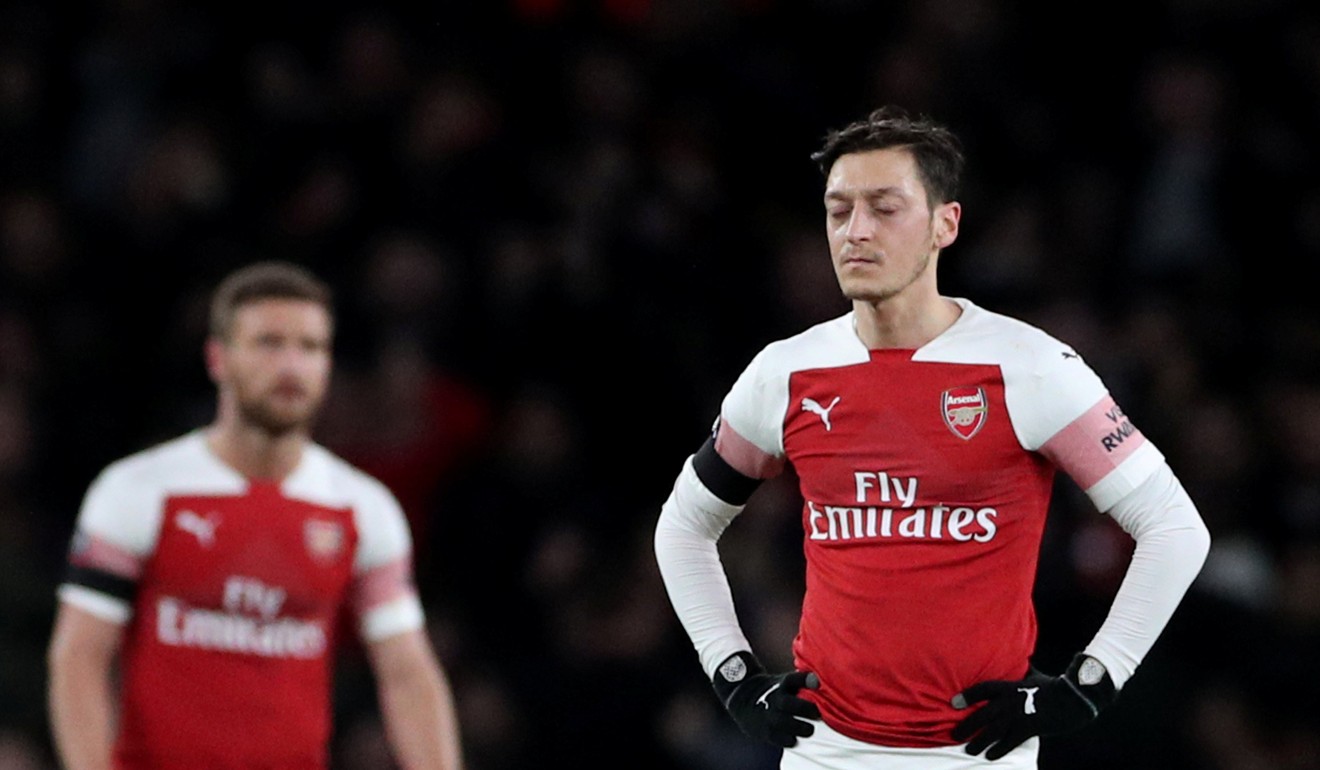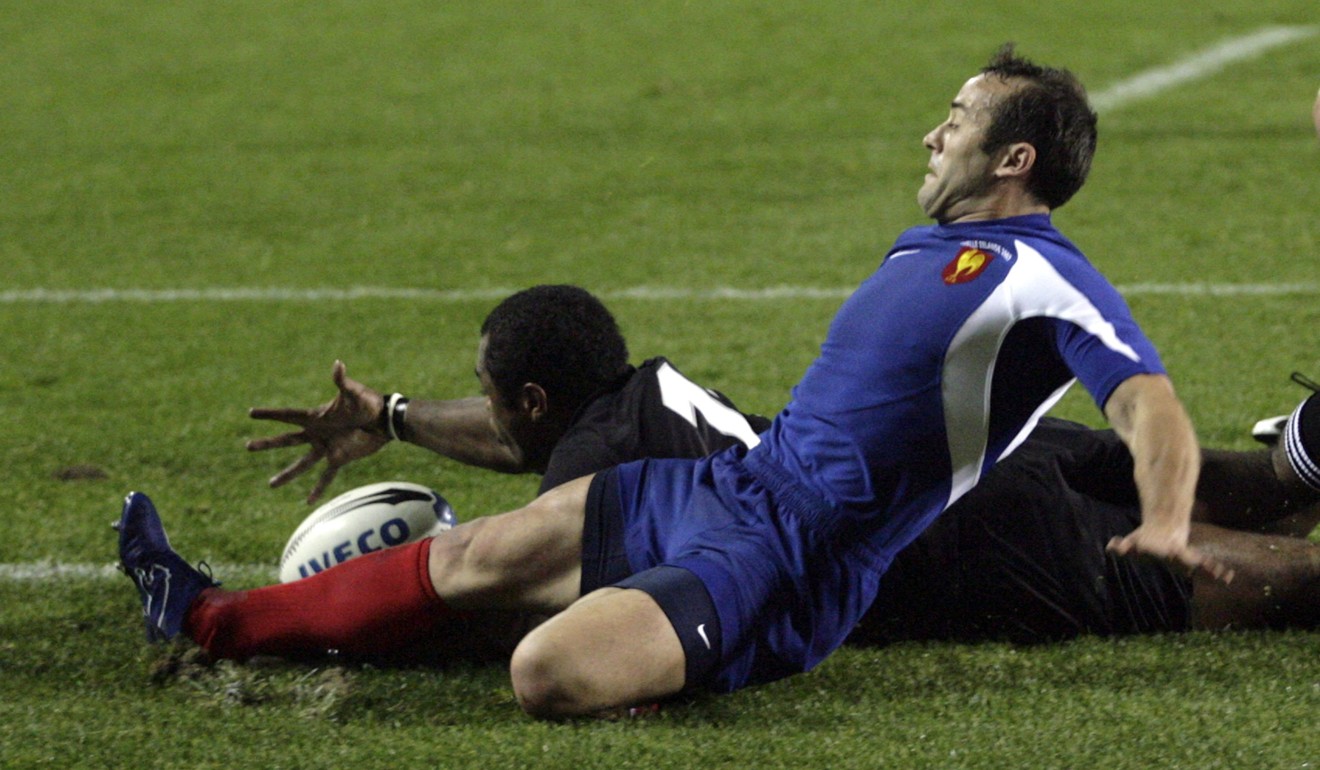
Naomi Osaka embodies the thorny issue of identity when it comes to sporting success
- Osaka is Japanese-Haitian but has been the source of much hand-wringing in recent months
- China begins to naturalise its diaspora in an effort to level the sporting playing field

“Identity is a pain in the arse,” said Zadie Smith at the recent Hay Cartagena book festival. The author knows a thing or two about the subject. Her debut novel, White Teeth, is nearly two decades old now, but still speaks to Britain’s relationship with its former colonies and the sons of daughters of them.
Fast forward to 2019 and Japan is coming to terms with Naomi Osaka; the Haitian-Japanese tennis star finding that her identity is a pain in the arse for other people and opening debates on what it means to be Japanese.

Osaka won the recent Australian Open to add to her US Open title at the end of 2018 and is the world number one as of the latest rankings.
While the landmarks keep dropping – Japan’s first grand slam winner, Japan and Asia’s first number one in tennis – the objections do not. How can she represent Japan when she speaks such bad Japanese, some ask, while noodle giant Nissin’s whitewashing of Osaka in a recent advert opened up a different debate.
Attitudes change, people break down barriers, and Osaka is not the only biracial athlete pushing preconceptions. She seems unfazed by the weight of this in interviews but it is of great interest to the media – and will continue to be as she keeps winning.

The first to confirm this new path was former Arsenal youth product Nico Yennaris. The Londoner has opted to become a Chinese citizen and move from English Championship club Brentford to Chinese Super League side Beijing Guoan. Handed the No 23 shirt, Yennaris is known by the Chinese name Li Ke.
“I’m delighted to announce I’ve signed for Beijing Sinobo Guoan FC as a Chinese citizen,” he wrote on Twitter. “It’s an exciting opportunity for me to play in the birth country of my mother and grandparents.”
Yennaris is joined at the Workers’ Stadium by another new Chinese citizen, John Hou Saeter. The Norway-born Chinese citizen has taken the No 7 shirt for Beijing Guoan and the Chinese name Hou Yongyong.
The move to naturalise players was expected from late last year, and more are set to follow. Everton defender Tyias Browning and Peru’s Roberto Suicho are set to be unveiled by Guangzhou Evergrande. Already there is talk that these players could be in line to make their debut for China in the China Cup in Nanning in March.
I’m delighted to announce I’ve signed for Beijing Sinobo Guoan FC as a Chinese citizen. It’s an exciting opportunity for me to play in the birth country of my mother and grandparents. Lastly, big thanks to @AreteLtd for helping make all this happen pic.twitter.com/boLWtSfWUv
— Nico Yennaris (@Nico_Yennaris) January 31, 2019
With that will come more questions, chief among them what does it mean to be Chinese? As Mesut Ozil pointed out in his retirement from the German national team, with whom he won the 2014 World Cup: “I am German when we win but I am an immigrant when we lose.” Others have felt similarly, such as France and Real Madrid forward Karim Benzema: “When I score I’m French, when I don’t I’m an Arab.”
Belgium and Manchester United striker Romelu Lukaku told the Players’ Tribune of his own experiences. “When things were going well, I was reading newspapers articles and they were calling me Romelu Lukaku, the Belgian striker, he wrote. “When things weren’t going well, they were calling me Romelu Lukaku, the Belgian striker of Congolese descent.”
That’s something “Jamaica-born” Raheem Sterling knows all too well from the British tabloids.

Will China’s new footballers be accepted as Chinese? Are these players the first step to a 57th ethnic minority? It’s fascinating to see how this will play out, especially as Chinese clubs seem so taken with the possibility of naturalising players that the Chinese FA has already acted to limit the number eligible to play in the league.
Forty years of Reform and Opening Up have ensured that there will be more biracial Chinese, which you can already see in age-group national teams and youth set-ups across the country.
This can only increase now the family trees of grandfathers and grandmothers are being dusted off, but the biggest issue is whether China has to dust its long neglected trophy cabinet.